Филиал Бюджетного профессионального образовательного учреждения Чувашской Республики «Чебоксарский медицинский колледж» Министерства здравоохранения
Чувашской Республики в городе Канаш
РАБОЧАЯ ТЕТРАДЬ
ПО АНГЛИЙСКОМУ ЯЗЫКУ
для студентов первого курса медицинских колледжей на базе среднего (полного) общего образования, при подготовке медицинских специалистов среднего звена 34.02.01 Сестринское дело (базовая подготовка).
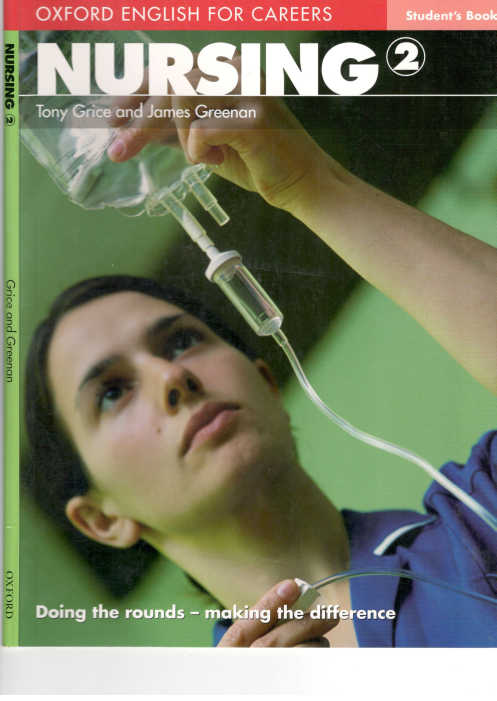
Канаш 2018 г.
Разработчики:преподаватели английского языка филиала БПОУ ЧР «Чебоксарский медицинский колледж» МЗ ЧР в городе Канаш Деведерова В.В., Сифурова Т.А.
Аннотация
Данная рабочая тетрадь предназначена для организации самостоятельной работы студентов в
урочное и внеурочное время.
Содержание рабочей тетради базируется на тематическом принципе. Рабочая тетрадь содержит
упражнения и задания, подходящие к конкретному тексту или разделу.
Задания представляют собой материал проверочного и обучающего характера, для развития
основных видов иноязычной деятельности. Задания предполагают выполнение тестов и письменных упражнений.
Рабочая тетрадь охватывает следующие темы «Олимпийское движение в мире», «Искусство и культура», «Пути карьерного роста» и рекомендуется для использования на учебных занятиях и при самоподготовке студентами медицинских колледжей, обучающихся по специальности «Сестринское дело».
Рабочая тетрадь соответствует требованиям ФГОС а также содержанию рабочей программы учебной дисциплины Иностранный язык и календарно – тематическому плану дисциплины, предназначена осознанному и прочному усвоению учебной информации по темам через навыки коллективной, групповой и самостоятельной работы с учебной литературой.
Введение
Рабочая тетрадь предназначена в помощь студентам медицинского колледжа при изучении тем второго полугодия первого курса. Рабочая тетрадь составлена в соответствии с требованиями ФГОС СПО и на основе Рабочей программы по дисциплине Иностранный язык для специальности 34.02.01 «Сестринское дело».
Рабочая тетрадь включает темы:
-Олимпийское движение в мире;
- Искусство и культура;
- Пути карьерного роста.
Целью рабочей тетради является выявление уровня знаний, умений и навыков студентов по иностранному языку, и способствовать осознанному и прочному усвоению учебной информации по дисциплине.
В результате усвоения учебной информации по темам студент должен
уметь:
- переводить тексты с полным или частичным пониманием его содержания;
- говорить по теме и поддерживать беседу;
- отвечать на специальные вопросы по теме;
- формулировать свои собственные вопросы по теме;
- общаться (устно и письменно) по теме на иностранном языку.
знать:
- лексический тематический минимум;
- разговорные клише по темам;
- лексико – грамматический минимум построения разговорной речи по теме на иностранном языке.
В рабочей тетради представлены задания на воспроизведение прочитанного текста, на усвоение лексико – грамматического материала с последующим выполнением упражнений и контрольными тестами в конце каждой темы с ответами на контрольные вопросы. Отдельной папкой представлены аудиофайла с текстами по аудированию, которые представлены в конце каждой темы.
Пояснительная записка
Рабочая тетрадь учебной дисциплины ОУД.02 Английский язык предназначена для самостоятельного изучения отдельных тем в учреждениях среднего профессионального образования, реализующих образовательную программу среднего (полного) общего образования, при подготовке медицинских специалистов среднего звена 34.02.01 Сестринское дело (базовая подготовка).
Данная разработка по английскому языку составлена в соответствии с Рабочей программой для специальности «Сестринское дело» и тематическим планом, предусмотренным Федеральным Государственным Образовательным Стандартом.
Рабочая тетрадь охватывает три изучаемые темы. Каждая тема состоит из следующих разделов:
- задания по чтению иноязычного текста;
- задания по расширению словарного запаса;
- задания по развитию навыков говорения и аудирования;
- тесты для самоконтроля.
В рабочую тетрадь также включены грамматические упражнения. Для более удобного выполнения заданий представлены грамматические таблицы, которые должны помочь при самостоятельном выполнении заданий.
При выполнении упражнений студентам рекомендуется использовать Большой англо-русский словарь Мюллера и англо-русский медицинский словарь Стедмана.
При составлении рабочей тетради использовалась литература различного уровня сложности, что обуславливается различным уровнем школьной подготовленности студентов.
Задания рабочей тетради способствуют решению задач, предусмотренных рабочей программой: подготовке грамотного специалиста, владеющего медицинской терминологией, развитию языковой активности студентов и автоматизации навыков и умений правильного употребления грамматических структур в новом лексическом окружении, как в устной, так и в письменной речи.
Студенту!
Эта рабочая тетрадь предназначена для изучения новой лексики по разделам:
«Олимпийское движение в мире», «Мир искусства и культуры», «Пути карьерного роста». Для того чтобы говорить, писать и понимать прочитанное на английском языке вы должны знать 2000 слов и выражений. В этой тетради около 500 новых и тематических слов и выражений для заучивания. Вы найдете эти слова в начале каждой темы. Каждое новое слово используется в текстах и лексико-грамматических упражнениях. Рабочая тетрадь составлена таким образом, что вы можете использовать её в самостоятельных аудиторных и внеаудиторных работах. Рекомендуется выполнять упражнения в данной последовательности: от простого к сложному уровню (от А до С).
Правильность выполнения заданий Вы можете проверить с преподавателем, так как рабочая тетрадь не содержит ключей.
При выполнения заданий вы можете использовать словарь для проверки значений отдельных слов и выражений, а также заданий к упражнениям.
Чтобы расширить свой словарный запас вы должны помнить о двух правилах: 1.Тщательно изучить каждый раздел рабочей тетради и выполнять все упражнения к ней, а затем проверить ваши ответы по ключу.
2.Записывать новые слова и выражения в словарь и регулярно повторять их в течении года.
Надеемся, что данная тетрадь поможет вам не только усовершенствовать ваши знания английского языка, но и расширить ваш кругозор. Вы узнаете много новых и интересных фактов, непосредственно касающихся вашей будущей профессии.
Желаем успехов!
CONTENTS
| Units | Grammar | Pages |
| Unit 1. The Olympic Movement | Present Perfect. Past Perfect, Past Simple
| 7-13 |
| Unit 2. Art and Culture | Modal Verbs
| 14-22 |
| Unit 3. The Way into Career | Present, Past, Future Continuous | 23-29 |
| Sources |
| 30 |
1A THE OLYMPIC MOVEMENT
READING OLYMPIC HISTORY
a) Read and try to understand the text.
Words for learning
| Slaves fine statues events hippodrome major ban gradually site revealed
|
Before reading, try to answer questions 1-3. Read the first paragraph to check.
The Olympic Games are
1,000 years old.
2,000 years old.
3,000 years old.
The Olympic Games started in
Greece. b) Italy. c) Egypt.
The Olympic Games are named after
a god. b) a place c) a river
Olympic athletes had to be male, of Greek nationality and not slaves. They promised to compete in an honorable way and to follow the rules, but some athletes still cheated. If caught, they had to pay a large fine. This money was used to pay for statues of Zeus, which were placed along the road to the stadium with name of the athlete who had cheated on the base. To get to the stadium, the athletes had to walk past all the statues.
Unlike the modern Olympics, which currently include 35 sports and nearly 400 events, many of which are team sports such as soccer and basketball, the ancient Games only included individual events. Seven types of events took place in the stadium, including running, discus javelin, long jump, wrestling and boxing. There was also chariot racing and horse racing in the hippodrome.
The Olympic Games became major sports events but the Roman Emperor Theodosius I finally decided to ban the Olympic Games in 393 A.D., after more than 1,000 years of existence, because he thought they were a pagan cult. Gradually the site disappeared and was forgotten. However, in 19-th century, archaeological work finally revealed the ruins of Olympia, and today visitors can appreciate Olympia and imagine the past glory of the Games.
b) Now read paragraph A-C and match highlighted words to their meaning.
Races or competitions events
Little by little _____
Money you have to pay when you do something ideal _____
Models or figures, usually of a person _____
Very important and\ or large _____
To prohibit something _____
People who belong to other people and work for no money ____
A place or location ______
Uncovered ______
A stadium where horse races take place ______
VOCABULARY SPORTS
Read the definition and write the words.
1. The people who watch sport spectators
2. The person who is the leader of a team c_______
3. The person who likes a sport a lot f_______
4. What sportsmen do before they start playing w______ up
5. If you do a lot of exercise, you will… get in s____
6. The place where you play tennis tennis c____
7. The person who controls, e.g., a soccer game r_________
8. The place where you skate skating r______
9. What professional athletes have to do every day tr______
10. The place where athletes run running tr__________
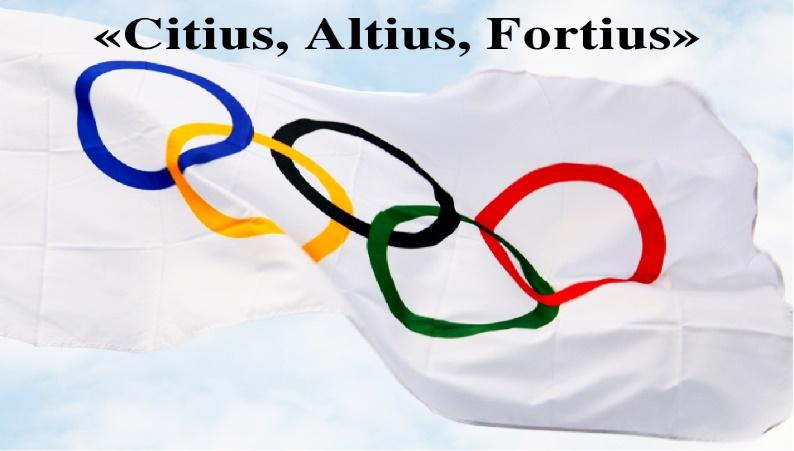
1B Winter Olympics
a) Fill in the blanks with words from the box below:
|
The Winter Games:
Every 1 years athletes from around the world gather to 2_ in Winter Games of the Olympics. The athletes, who 3 ______ extremely hard are chosen to 4 _____ their countries. The Games begin with the 5 _____ ceremony, where the athletes 6 ___ in front of an audience.
The Events:
The Winter Games is comprised of many different 7 _____. There are sledding events such as the 8 ___ and the 9_____. There are skiing events such as 10 _____ and 11 ___. There are also team sports such as 12 ____. Every Olympics some new events are added such as 13 _____, which was added in the 1998 Nagano Olympic Games.
Winning:
The dream of every athlete is to make it to the 14_____, which is where the medals are handed out. The first place winners receive the 15_____ medal and have the 16 ____ of hearing their countries 17 ____ played. The second place winners receive the 18 ______ ____medal and the third place winners receive the 19_____ medal. Often, the winners are 20 _____ by who has the 21_____ time. Events such as the 22 ____skating are decided this way. Panel of 23 ____, who give marks according to artistic and technical ability, determines other events such as 24 ____skating.
SPEAKING
a) Can you tell about the athlete from Russia using the chart below?
.
Name
Tatyana Akimova
Date of birth
26. Oct.1990
Place of birth
Cheboksary (Russia)
Residence
Cheboksary (Russia)
Languages
Russian, English
Hobbies
books
Profession
athlete
Family
Married husband Vyacheslav Akimov
(EC 2011 athlete, champion)
son of her trainer A. Akimov.
Sport
World Cup debut 2015,
Biathlon since 2003
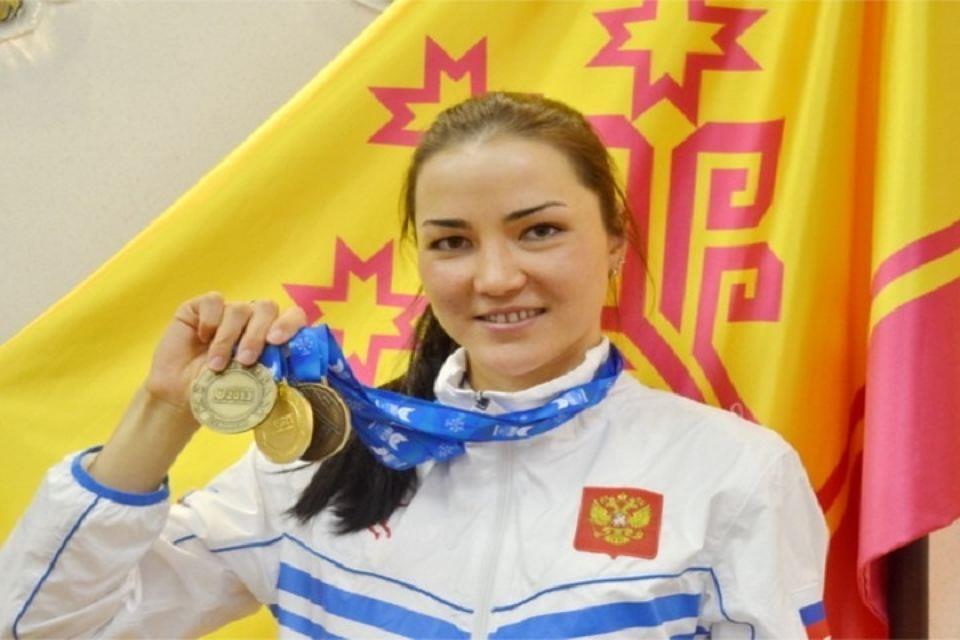
I`d like to tell you about …. She is a (an)… . Her … is… . She has… .
GRAMMAR Present, Past Tenses
1С Present Perfect, Past Perfect, Past Simple
1. Past Simple Tense — Простое прошедшее время
Часто в таких предложениях используются обстоятельства и предлоги времени as a rule, ago, every…, last…, often, seldom, sometimes, when…, yesterday.
П + V2 (Ved) + Д….
Our team won the game last season. They played very well.
Did + П + V + Д…?
Did the sportsmen win the game?
Wh did + П + V…?
What did the sportsmen win?
Wh- What When Why How Where What for
П +did not +V +Д… .
We did not play football yesterday, it was too cold.
2. Past Continuous Tense — Прошедшее длящееся время
Часто в таких предложениях используются обстоятельства и предлоги времени at that time, at … o`clock yesterday, from… till …yesterday, while…, the whole day, when… yesterday, all the day.
П + was (were) V-ing + Д… .
Our team was playing the game at that time. .
Was (Were) + П + Ving + Д…?
Were you playing all the day?
Wh were + П + Ving…?
What were the sportsmen doing from 3 p.m. until 5 p.m.?
Wh- What When Why How Where What for
П +were not +Ving +Д… .
We were not playing football at that time , it was too cold.
3. Времена Present и Past Perfect используются для описания действия, которое началось с
какого-то момента в прошлом и продолжается до настоящего времени. Часто в таких предложениях используются обстоятельства и предлоги времени for, since, yet, already, just, ever, never; а для Past Perfect также by that time
П + have +V3 (Ved) +Д… .
П + had +V3 (Ved) +Д… .
I have just met them at the stadium.
Have + П + V3 (Ved) + Д…?
Had + П + V3 (Ved) + Д…?
Wh have +П + V3 (Ved) +…?
П + haven`t +V3 (Ved) +Д .
П + hadn`t +V3 (Ved) +Д… .
1. Complete these sentences with the correct form of the verbs in brackets.
1. I was waiting (wait) to play tennis yesterday when my partner ______(call) me to say that he ______ (not can) come because his car _______ (break down).
2. Chicago _____(beat) Boston yesterday. Boston ____(win) 44-39 in the first half but Chicago ___ (score) 46 points in the second half to Boston`s 39.
3. We were late. When we ___ (arrive) everyone ___ (finish) their lunch and they _____ (sit) in the living room having coffee.
4. I ____ (run) to the station but the six o`clock train _____ (already\ leave). The station ____ (be) empty except for three people who ____ (wait) for the next train.
5. It _______(start) raining when he _______ (walk) to work . He ______(stop) a taxi because he ____ (not wear) a coat and he _____( not have )an umbrella.
6. They ____(drive) to the airport when they suddenly ______(remember) that they ____ (not turn off) the lights.
7. I _____ (not recognize) many people at my old school reunion because everyone ________ (change) a lot in twenty years.
8. The Game _____ (already\ start) when we ______ (turn on) the TV. Costa Rica ______ (lose) 1:0 and they _____(play) very badly).
LISTENING
a) Listen to the text and put the missing word into the gaps.
athletes Zeus circles competitors motto
1. The five Olympic 1____represent the five continents: Africa, North and South America, Asia and
Australia. They are connected to symbolize the sports friendship amongst all the people in the world.
2. The Olympic 2______“Citius, altius, fortius” means “Faster, higher, stronger” in Latin.
3. The first official Olympic Games took place in 776 BC. They were held in honor of 3______ the
supreme god of the Greeks.
4. The Games are meant to promote to respect amongst all the 4________, regardless of their race.
religion or sex.
5. To get an idea of the number of competitors participating in the Olympic Games- at
Sydney 2000, 10,300 5________ came involved in 28 sports, 292 events and 635 matches.
Track 31 АУДИ-ФАЙЛ
REVISING TEST 1 OLYMPIC MOVEMENT
1. Olympic athletes had to be……of…..nationality.
a)male Greek
b)female Roman
c)both
2. This money was used to pay for statues of….
a)Heracles
b)Zeus
c)Apollo
3. Modern Olympics include…..sports and nearly…….events.
a) 30/400
b) 36/400
c) 35/400
4. The ancient Games only included…….events.
a) individual
b) team
c) both
5. ……types of events took place in the stadium.
a) six
b) seven
c) eight
6. In…….century archaeological work finally revealed the ruins of Olympia.
a) 17-th
b) 18-th
c) 19-th
7. The first record of the Olympic Games dates from……BC.
a) 776
b) 777
c) 778
8. The Olympic motto “ Citius altius fortius” means “ Faster higher stronger” in….. .
a) Greek
b) Latin
c) Roman
9. The Olympic Games were held in honor of…….the supreme god of the Greeks.
a) Apollo
b) Heracles
c) Zeus
10. The Olympic circles are connected to symbolize the….. …. amongst all the people in the world.
a) sports friendship
b) sports continents
c) sports Committee
11. Baron Pierre de Coubertin is…. .
a) English
b) French
c) Italian
12. The Olympic Games could help to bring…. .
a) peace
b) war
c) trouble
13. Coubertin believed that sportsmen must not compete for….. .
a) glory
b) money
c) honor
14. Coubertin formed the international Olympic Committee in….. .
a)1896
b) 1986
c) 1894
15. The Olympic Games began again on….. .
a) 15 May 1796
b) 5 April 1896
c) 10 August 1986
16. Coubertin found an emblem in…
a)1989
b)1898
c)1913
17. An emblem consist of…
a) three linked rings
b) five linked rings
c)fifteen linked rings
18. Olympic rings represent…
a) parts in the world
b)cities in the world
c)countries in the world
19. The Olympic Games held once every…
a)five years
b)four years
c)three years
20. The spirit of Olympic is not winning…
a) but money
b)but loss
c)but talking part
2A Art and Culture
READING
ART AND LITERATURE
Words for learning
Mean bear move realize disappoint powerful shapes features poor success
a) Read the texts and try to put the words in italics in the correct form.
Pablo Picasso
Many people realized that Pablo Picasso was a genius but he disappointed those who wanted __HE_________ to become a traditional painter. He was always breaking the rules of artistic traditions and shocked public with his strange and powerful pictures. He is probably __GOOD_________ known for his “Cubist” pictures, which used only simple geometric shapes. His paintings of people often _MAKE________ up of triangles and squares with their features in the wrong place. His work changed our ideas about art and, nowadays, to millions of people modern art _MEAN_____ the work of Picasso.
George Bernard Shaw
George Bernard Shaw, an outstanding Irish playwright and critic, _BEAR____ in Dublin on July 26, 1856 to a poor protestant family.
Later the family _MOVE____to London. There he started writing novels and plays. Between 1892 and 1930 he _WRITE______ over twenty plays, both tragedies and comedies.
One of the __POPULAR_______ plays is “Pygmalion”. In many countries of the world, this play always _BE_____ a great success with the public.
b) Are these statements true or false? Correct the false ones.
1. P. Picasso was a traditional painter.
2. The artist used triangles and squares in his paintings.
3. To millions of people modern art is connected with the name of B. Shaw.
4. G. B. Shaw is an outstanding writer of the 20th century from Ireland.
5. B. Shaw wrote only comedy plays.
6. «Pygmalion» - is one of the most popular paintings of P. Picasso that is always a great success with the public.
VOСABULARY ART
Read the information about various forms of art. Match the terms with their definitions.
If you want to see the paintings of a famous artist, you need to go to an art gallery or museum. There you can see individual paintings and sometimes an exhibition by one or some painters. There are many different types and styles of paintings: portraits, landscapes, sketches, and drawings. For example, murals are large pictures, usually painted on a wall.
1. caricature
2. cartoon
3. collage
4. diagram
5. drawing
6. fresco
7. graph
8. illustration
9. mural
10. silhouette
11. sketch
12. tapestry
a. a picture made with a pencil
b. a drawing showing the parts of something to explain how it works
c. a drawing showing by a line the connection between two quantities
d. a rough drawing without many details on it
e. a picture to go with the words of a book
f. a picture in solid black
g. a picture painted in water colour on a surface of a fresh wet plaster
h. woven cloth hanging on a wall, with pictures woven from coloured wool or silk
i. a humorous drawing, often dealing with something of interest in the news in an amusing way
j. a representation of a person made so that aspects of his or her appearance appear more noticeable than they really are
b) Read and try to understand the text. Mona Lisa
She was painted in the early 1599s by Italian Renaissance artist Leonardo da Vinci. Today, she hangs in the Louvre, an art museum in Paris. She is Mona Lisa – one of the most famous portraits in the world.
The subject of the portrait was a woman from the city of Florence, Italy. At age 16, Mona Lisa married Francesco del Gioconda- a wealthy merchant19 years her senior. When Gioconda asked da Vinci to paint his young wife, the artist was struck by the woman`s beauty, so he agreed. Stories say that da Vinci hired jesters to sing and dance while Mona Lisa sat for her portrait. Perhaps this accounts for her special smile-one that has been described as both “mysterious” and “haunting”.
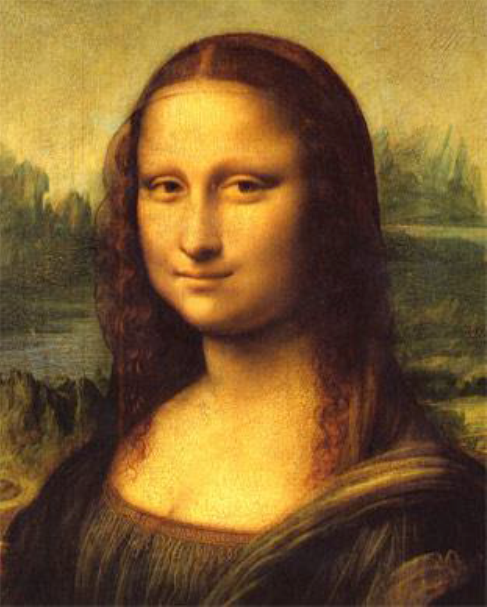 Some fascinating facts about the painting:
Some fascinating facts about the painting:
The original name of the painting was not Mona Lisa- it was La Gioconda.
The subject of the portrait has no eyebrows. It was the fashion of the day to shave them off.
X-rays of the painting show that there are three different versions of the subject, all painted by da Vinci, and layered under the final portrait.
In 1911, an employee of the Louvre stole the Mona Lisa from the museum. It was not returned until 1913, when the thief tried to sell the masterpiece to an art collector. The thief was called the biggest art heist in history.
The Mona Lisa has been an inspiration to musicians and poets. American songwriters Livingstone and Evans wrote a hit song about the portrait.
c) Circle a letter to show how each sentence should be completed.
1. The Mona Lisa was originally named La Gioconda because Gioconda was
a) the artist`s name b) Mona Lisa`s maiden name c) Mona Lisa`s married name
2. Mona Lisa is famous for her
a) smile b) hair c) costume
3. Mona Lisa has no
a) teeth b) eyebrows c)hair
4. The Louvre is
a) a style of painting b) a Paris museum c) the name of a portrait
5. Portrait is
a) a picture of a person, usually focusing on the face
b) a picture of a stretch of outdoor scenery
c) a simple picture, usually done quickly and with a very little detail
2B Music
VOСABULARY
a) Fill in the missing words from the box below.
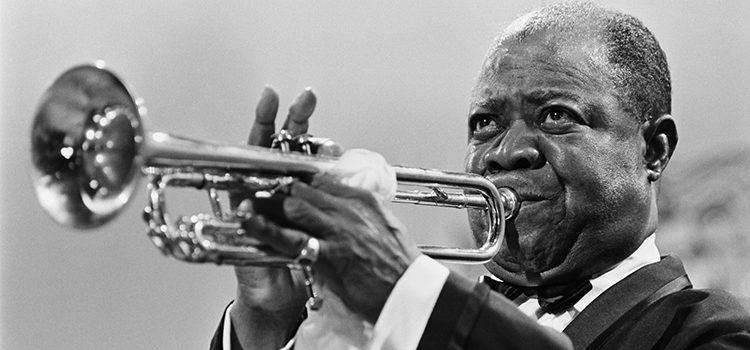
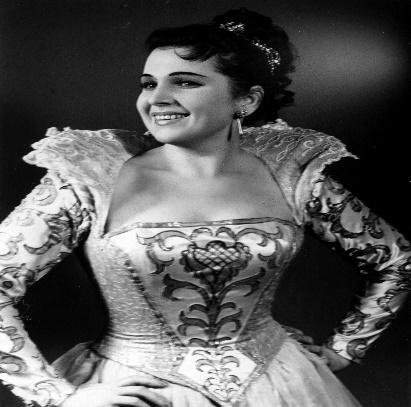

rap - opera - jazz – punk- heavy metal- blues
1 __punk___ Rock music that is played in a fast, loud and aggressive way. It was very popular in the late 1970s.
2 ________ A style of music invented by African- American musicians in the early part of twentieth century. It has a strong rhythm and often involves improvisation. Famous musicians include Louis Armstrong, Billy Holiday and Miles Davis.
3 ________ A type of music in which the singers don`t sing but speak the words quickly, in a rhythmic way.
4 ________ It`s like a play in the theatre, but people sing the words.
5 ________ A type of very loud rock music, with lots of guitars and a strong beat.
6 ________ A type of music developed by African- American musicians of the southern United States. It is slow, often sad, and with a strong rhythm.
READING
b) Read the text, put the missing words.
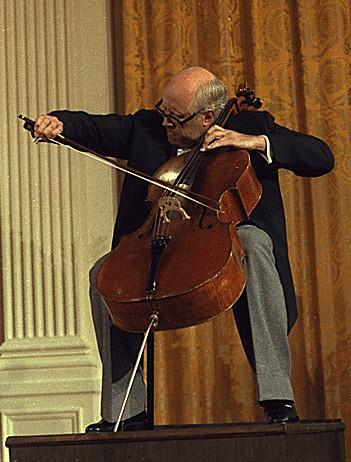

Mstislav Leopoldovich Rostropovich (1927-2007) was a Russian 1______and conductor. He is widely considered to be 2_______ of the greatest cellist of the 20th century.
Rostropovich`s 3_________ is Baku. He grew up in Baku and spent his 4______there.
At the age of four, Rostropovich learned the 5________ with his mother, a talented pianist. He started the cello at the age of 10 with his father, who was also a cellist.
Rostropovich gave his 7_______cello concert in 1942. In 1950, at the age of 23 he was awarded what was then 8________ the highest distinction in the Soviet Union, the 9______ Prize.
Rostropovich received many 10_______ awards, including the French Legion of Honor and honorary doctorates from many international 11________. He was an activist, fighting for 12___________ of expression in art and politics.
He 13_______ on April 27 2007. This was the birth date of Sergey Prokofiev under 14______ Rostropovich had studied and some of whose 15 ______ he had premiered.
Some fascinating facts about the composer:
M. Rostropovich was married to the outstanding Russian opera singer GalinaVishnevskaya from 1955 until his death in 2007; they performed together regularly. Both she and he were friends of a Great Russian composer Dmitri Shostakovich.
__________________________________________________________________
Conductor- the person who stands in front of the orchestra and leads it.
Cello – a musical instrument larger than a violin. Cellist- the musician who plays the cello.
SPEAKING
c) Fill in the chart and try to retell the text using it. (See the text above)
Name
Date of birth
Place of birth
Parents
Languages
Russian, English
Education
Professional carrier
Family
Awards
LISTENING Track 32 Аудиофайл
d) Read after the speaker and put the words under the following headings: Music, Cinema, Literature, Painting, Dance
Casting,watercolour,flamenco,violin,oil,novel,note,screen,tango,brush,camera,role,waltz,script,corps de ballet,fairytale,poetry,orchestra,canvas,composer,pencil,conductor,short story, portrait, comics, gallery, DVD player, disco, artist, playwright
2C MODAL VERBS GRAMMAR
МОДАЛЬНЫЕ ГЛАГОЛЫ И ИХ ЭКВИВАЛЕНТЫ
Глагол
Present
Past
Future
-Must I memorize this poem?
-Yes, you must.
Must-должен обязательно что то сделать
Must+V
-Сan
Can- мочь, могу, умею
Can +V
Could +V
Will be/shall be able to+V
-Do we have to wait long?
-Yes, you do.
Have to ( have got to)-должен, приходится поневоле, вынужден(в силу обстоятельств)
Have to/has to +V
had to +V
Shall/have
Will/ to+ V
I am to meet her in the library today.
Be to-должен(я обещал, запланировал по расписанию, по договоренности)
Am to
Are to +V
Is to
Was to
+V
Were to
You should study the English words before you go to bed.
Should-должен(следует по моему мнению, совету)
Should +V
You ought to return the book to me on time.
Ought to-следует, должен(это твой моральный долг, когда мы говорим о законе, правилах)
Ought to +V
You needn’t clean the windows.
They are clean already.
Needn’t-нет никакой необходимости(нужды)
- как модальный используется только в отрицательных или вопросительных предложениях
Needn`t +V
Need…+V…?
May I take your pen? Yes, you may.
May- разрешение, упрёк, предположение
May +V
Might +V
a) Chose the appropriate form of the modal verb.
1. Can you to\ - (drive, swim, play) the piano?
2. What can you (to do\ do) in the evening?
3. Where have you (to go\ go) if you fall your exams?
4. What kinds of musical instruments can you (to find\ find) in the orchestra?
5. How many new words must you (to learn\learn) every day?
6. Must you (to attend\ attend) all lectures on mathematics?
7. Who must we (show\showed) the documents to?
8. Why mustn’t we (miss\ missing) the excursion to this gallery?
9. May I (used \ use) your telephone?
10. What may (happen\happening) to a man if he doesn’t follow the doctor’s advice?
11. Who should (accompany\ accompanying) you to the concert?
12. Where should art masterpieces (be\is) kept?
13. Need you (to work\ work) so much to become a good artist?
14. Do you have (to stay\to stand) in bed when you are ill?
15. Why do you have (to give up \give) playing the saxophone?
16. Is the museum (to open\ to close) at six p m?
17. (Where\Were) you to read Oliver Twist at school ?
b) Translate into English. Use modals or their equivalents instead of highlighted Russian words.
Ты можешь помочь мне сейчас? - Извини, не могу. Я должна идти домой, мне придётся остаться дома с сыном моей сестры. Она должна была уехать в командировку вчера. Я смогу помочь тебе завтра, если ты можешь подождать. – Когда ты должен быть дома? – Я обещала приехать домой в 7 вечера. Как часто тебе приходится заботиться о своём племяннике? – Когда я могу, я всегда помогаю ей. -Могу я что-то сделать для тебя? – Нет, не нужно.
REVISING TEST 2 ART AND CULTURE
Pablo Picasso shocked public with his strange and powerful...
a) Pictures
b) Caricatures
c) Illustrations
Works of Picasso changed our ideas about…
a) Literature
b) Art
c) Culture
«…» is one of the most popular plays of G.B.Shaw.
a) Mona Lisa
b) Cubist
c) Pygmalion
To see the paintings of a famous artist, you need to go to an… or… .
a) Art gallery, museum
b) Exhibitions
c) Theatres
Today, Mona Lisa hangs in the Louvre, an art museum in…
Paris
b) Italy
c) London
….songwriters Livingstone and Evans wrote a hit song about Mona Lisa .
a)Italian
b) American
c) Russian
Mona Lisa is famous in the world for her…
a) hair
b) costume
c) smile
Portrait is…
a picture of a person, usually focusing on the face.
a picture of a stretch of outdoor scenery.
a picture usually done quickly and with a very little detail.
…a type of music in which the singers don’t sing but speak the words quickly, in a rhythmic way
Punk
rap
opera
…a type of very loud rock music, with lots of guitars and a strong beat.
Punk
heavy metal
jazz
M.L. Rostoropovich was a Russian … .
composer
opera singer
conductor
M.L. Rostoropovich started the cello at the age of… with his father
a)10
b) 11
c) 12
The … is famous all over the world for its collections of canvases and other art objects.
Tretyakov Gallery
Hermitage
Louvre
A Russian merchant and a connoisseur of art…founded picture gallery in Moscow in the 19th century.
D.Shostakovich
S.Prokofiev
P.Tretyakov
The Tretyakov Gallery reflects the whole history of…art
American
Italian
Russian
Russia is world-famous for its …
a) literature
b) culture
c)art
The «golden age» of Russian literature began in the…century
a)18th
b)19th
c)20th
Alexander Pushkin was the author of more than…lyrical poems.
500
600
700
The real Russian jewel of architecture is the Moscow…
Kremlin
St Basils Cathedral
Treyakov Gallery
All people of our country`s culture make their contribution into … culture and art.
American
Italian
Russian
3A Choosing a carrier
READING the way into career
a) Pre-reading task. Make different word combinations from the words in the box. Then read this short text and try to understand it.
Words for learning
Real noble necessary mortal medical infectious
Profession disease college nurse person doctor patient
The Work of a Nurse
You know I am a medical college student now. My future profession is nursing. The work of nurses is very important and necessary.
Every nurse must remember that there are no two identical people and that every patient will react to diseases in his own way. That is why each patient needs special care.
Observations of a nurse are also very important. The nurse can see any changes in the health of her patients. Her observations will help doctors to diagnose and treat the patients. In a hospital, the nurse has a lot of duties and she works in many areas: in wards, laboratories, emergency department, etc.
In wards, the nurse gives medicines, makes injections, and applies cups and mustard plasters. She carries out all orders of doctors.
Every nurse must have enough knowledge of her work, because she must help people any hour of the day and night. She must take care of patients even if they have mortal infectious diseases.
The fact is that research work goes on not only in laboratories but also in hospital wards. Every nurse must be a member of the clinical research team.
The life of nurses is devoted to people; they are always responsible for what they do.
b) Finish the sentences.
1) The profession of the nurse is ________________. 2) A nurse must be _____________________.
3) A nurse makes ___________________. 4) A nurse gives ________________________.
5) A nurse puts ____________________________. 6) A nurse takes care of __________________.
7) A nurse is responsible for ___________________. 8) A nurse must have ____________________.
c) Chose the necessary word from the brackets.
The work of a nurse is ... to people (presented, devoted).
The nurse ... for patients (cares, looks).
She must apply ... and ... (medicines, cups, mustard plasters, injections).
The nurse must have enough ... (books, magazines, knowledge).
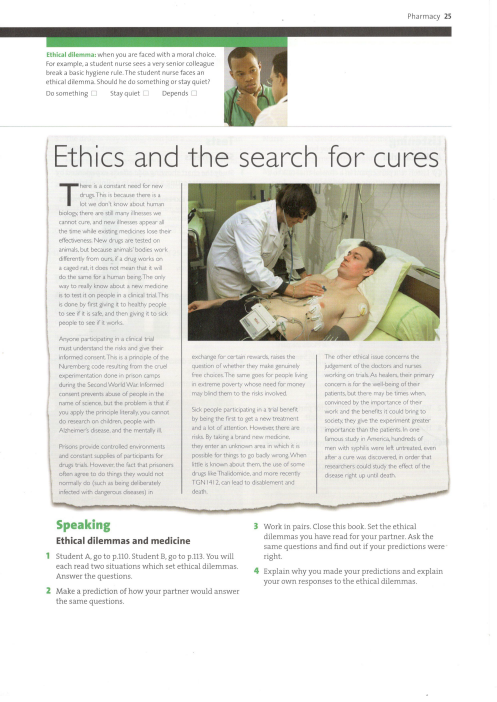 3B Looking for a job
3B Looking for a jobVOСABULARY
Match the professions and their descriptions.
_____ Journalist 1) person who drives a bus.
_____ Teacher 2) He/she works in a school and teaches students.
_____ police officer 3) rescues people from burning buildings and helps put out fires.
_____ accountant 4) works in hospital and helps doctors.
_____ Business person 5) defends people's rights in court.
_____ doctor 6) flies an airplane.
_____ nurse 7) takes people's orders in a restaurant and serves them food.
_____ pilot 8) works in a police station and maintains public security.
_____ taxi driver 9) works in a bank and keeps records of money.
_____ bus driver 10) works in a hospital and treats patients.
_____ manager 11) answers phone calls and does office work for his/her boss.
_____ chef 12) drives a taxi.
_____ actor 13) person who reports news on TV, radio or Newspaper.
_____ actor 14) does the cooking in a restaurant or hotel.
_____ firefighter 15) a woman who plays a role in a movie.
_____ waiter 16) manages the affairs of a company or business.
_____ lawyer 17) one who does business.
_____ secretary 18) a man who acts in a movie.
Put these words under the following headings: a) is working with animals b) being alone c)working on your own d) taking responsibility e) working outdoors f) together with other people g)relationships with somebody
|
|
|
|
|
|
|
| | | | | | | |
Linguistic guide
The difference between the following words job, a work, an occupation, a profession, a career.
Your job is the work that you do regularly in order to earn money, especially when you work for a company or public organization.
Work is used in a more general way to talk about activities that you do to earn money, either working for a company or for yourself.
We use occupation to talk about the kind of work that someone usually does. Occupation is used mainly on official forms.
A profession is a kind of work for which you need special training and a good education.
Your career is the type of work that you do or hope to do for most of your life
с) Insert the words according to the meaning:
|
Why is it important to choose the right…
Looking for a … is hard…
We finished the test and the teacher collected our…
She spent most of her … as a teacher in London.
He tried many … but finally he chose the …of a shoemaker.
Thousands of workers lost their… when the factory closed.
It had taken her several years before she realized that she had no … for teaching.
What’s your current…?
Indecisive people refuse to face the …problem.
The … of bank manager is still open.
The construction of the factory in the town created a lot of …
There are many … open to the University graduates.
SPEAKING
Put the words in these questions in the correct order. Match the questions above with the answers below. In pairs, perform the dialogue using the following exercise.
Living do do what for you a ?
You do much how earn?
Tax you pay do have income to?
Much do get holiday you how?
Overtime in you do work job have to your?
Pay you do holiday get?
Pay get sick you do?
Your what involve does job?
Yes, if we are very busy.
Yes, up to six months’ full salary.
£40,000 per year.
Yes, I pay 40% a year to the government.
I deal with overseas clients, mainly.
28 days.
I work for an international bank.
Yes, it is included in my salary.
LISTENING Track 38 Аудиофайл
Read after the speaker and match the names of professions with the pictures.
Mechanic, chemist, accountant vet, lawyer, hairdresser, decorator, make-up designer, interpreter, chef, librarian, shoemaker, electrician, carpenter, tailor.
GRAMMAR
3 С the Perfect Continuous Tenses
Present Perfect Continuous
Past Perfect Continuous
Future Perfect Continuous
П + has|have been + V-ing .
П + had been + V-ing .
П + will\shall have been + V-ing .
П + has|have not been + V-ing .
П + had not been + V-ing .
П +won`t\ shan`t |have been + V-ing .
Wh +has\have+ П+ been + V-ing… ?
Wh +had+ П+ been + V-ing… ?
Wh +shall\ will+ П+have been + V-ing… ?
Временные указатели: for a…, since
a) Put the verb into the more suitable form, present perfect simple (I have done etc.) or continuous (I have been doing etc.).
1. Where have you been? Have you been playing (you/play) tennis?
2. Look! Somebody --- (break) that window.
3. You look tired. --- (you/work) hard?
4. '--- (you/ever/work) in a factory?' 'No, never.'
5. 'Jane is away on holiday.' 'Oh, is she? Where --- (she/go)?
6. My brother is an actor. He --- (appear) In several films.
7. 'Sorry I'm late.' 'That's all right. I --- (not/wait) long.'
8. 'Is it still raining?' 'No, it --- (stop).'
9. I --- (lose) my address book. --- (you/see) it anywhere?
10. I --- (read) the book you lent me but I --- (not/finish) it yet.
11. I --- (read) the book you lent me, so you can have it back now.
b) Read the situations and make sentences from the words in brackets.
1. I was very tired when I arrived home.
(I/work/hard all day)
I had been working hard all day.
2. The two boys came into the house. They had a football and they were both very tired.
(They/play/football)
3. There was nobody in the room but there was a smell of cigarettes.
(Somebody/smoke/in the room)
4. Ann woke up in the middle of the night. She was frightened and didn't know where she was.
(She/dream)
5. When I got home, Mike was sitting in front of the TV. He had just turned it off.
(He/watch/TV)
c) For each situation, ask a question using the words in brackets.
1. You have a friend who is learning Arabic. You ask: (how long/learn/Arabic?) How long have you been learning Arabic?
2. You have just arrived to meet a friend. She is waiting for you. You ask: (how long/wait?)
3. You see somebody fishing by the river. You ask: (how many fish/catch?)
4. Some friends of yours are having a party next week. You ask: (how many people/invite?)
5. A friend of yours is a teacher. You ask: (how long/reach?)
6. You meet somebody who is a writer. You ask: (how many books/write?)
(how long/write/books?)
7. A friend of yours is saving money to go on holiday. You ask: (how long/save?)
(how much money/save?)
REVISING TEST 3 CHOOSING A CARRIER
Journalist is a …. .
Person who reports news on Mass Media
Person who drives a bus, taxi
Person who treats patients
Teacher is a … .
A person who works in a bank and keeps records of money
Person who works in a college and teaches students
Person who works in a police station
Doctor is a …
Person who answers phone calls in a hospital
Person who manages the affairs of a hospital
Person who works in a hospital and treats patients
Nurse is a ……..
Person who works in a hospital and helps doctors
Person who takes patients in a hospital
Person who defends patients from the diseases
Programmer is a …….
Person who design software programs
Person who works on updating, modifying expending repairing programs
Person who writs computer programs
A … is a person who is a specialist in library work.
Lawyer
Lecturer
Librarian
A … is a person who works at the make-up counters.
Cosmetologist
b) Artist
c) Journalist
Nursing profession… give the adventure and wide variety of exiting job opportunities.
Must
Can
Should
The work of … is very important and necessary today.
Doctors
Teachers
Nurses
Each patient needs special … .
Care
Order
Advice
…. of a nurse are also very important/
Prescriptions
Observations
treatment
The nurse can see any changes in the … of her patients.
Disease
Life
Health
….observations will help doctor to diagnose and treat the patients.
Her
Him
He
In a hospital, the nurse has a lot of … and she works in many areas.
Care
Duties
Medicines
In …the nurse gives medicines, makes injections, apply cups and compress.
Community
Hospital
Ward
She has been dreaming about a round sea voyage… the time when she became interested in the tourism business.
For
Since
During
He studied Japanese… three years but then, all of a sudden, he gave it up and got interested in Spanish.
For
Since
During
Do you remember going on any trips with your group mates …the academic year.
For
Since
During
He hasn`t flown … that unlucky trip when all of his luggage was lost at the airport.
For
Since
during
Because of my parents jobs I travelled a lot …my childhood. It was very exciting for a kid.
For
Since
During
Основные источники:
1. Planet of English: учебник английского языка для учреждений СПО / Г. Т. Безкоровайная, Е.А. Койранская, Н.И.Соколова, Г.В.Лаврик. — М.: Издательский центр «Академия», 2014. -256 с.
2. Planet of English: учебник английского языка для учреждений СПО / Г. Т. Безкоровайная, Е.А. Койранская, Н.И.Соколова, Г.В.Лаврик. электронный учебно-методический комплекс английского языка для учреждений СПО. - М., Академия, 2015. -255 с.
3. Соколова Н.И. Planet of English: Humanities Practice Book. Английский язык. Практикум для специальностей гуманитарного профиля СПО. электронный учебно-методический комплекс английского языка для учреждений СПО. — М., Академия, 2014. - 89 с.
4. Тимофеев В. Г., Вильнер А. Б., Колесникова И. Л. и др. Учебник английского языка для 10 класса (базовый уровень) / под ред. В. Г. Тимофеева. – М.: Издательский центр «Академия», 2012. – 261 с.
5. Мюллер В. К. Англо-русский и русско-английский. – М.: Эксмо, 2012. – 698 с.
6. Virginia Evans – Jenny Dooley Upstream. Elementary A2 Student’s book - Express Publishing, р. 145, 2012
7. Virginia Evans – Jenny Dooley Upstream. Elementary A2 Workbook student’s book - Express Publishing, p. 97, 2014
Дополнительные источники
1. Global Beginner Coursebook. Кейт Пикеринг, Джеки Макэвой, - Оксфорд, Макмиллан, 2012 Global Elementary Coursebook. Линдсей Кленфилд, Ребекка Роб Бени, - Оксфорд, Макмиллан, р. 198, 2012
2. Global Pre-intermediate Coursebook. Линдсей Кленфилд, - Оксфорд, Макмиллан, р. 199, 2012
3. In Company Second Edition, Elementary Student's Book with CD-Rom. Саймон Кларк - Оксфорд, Макмиллан, р. 240, 2012
4. In Company Second Edition, Pre-intermediate Student's Book with CD-Rom. Саймон Кларк - Оксфорд, Макмиллан, р. 137, 2013
Интернет ресурсы:
www.lingvo-online.ru (более 30 англо-русских, русско-английских и толковых словарей общей и отраслевой лексики).
www.macmillandictionary.com/dictionary/british/enjoy (Macmillan Dictionary с возможностью прослушать произношение слов).
www.britannica.com (энциклопедия «Британника»).
www.ldoceonline.com (Longman Dictionary of Contemporary English).
http://www.britannica.co.uk
http://en.wikipedia.org
http://www.bbc.co.uk/health/
http://www.hospitalenglish. com

 Получите свидетельство
Получите свидетельство Вход
Вход












 Рабочая тетрадь по английскому языку для студентов первого курса медицинских колледжей (29.35 MB)
Рабочая тетрадь по английскому языку для студентов первого курса медицинских колледжей (29.35 MB)
 0
0 2395
2395 57
57 Нравится
0
Нравится
0


